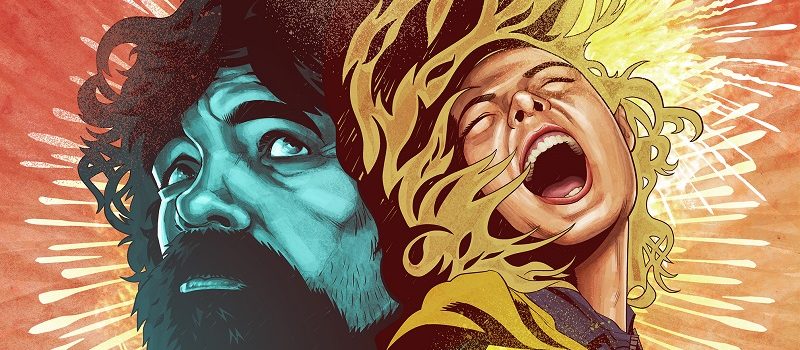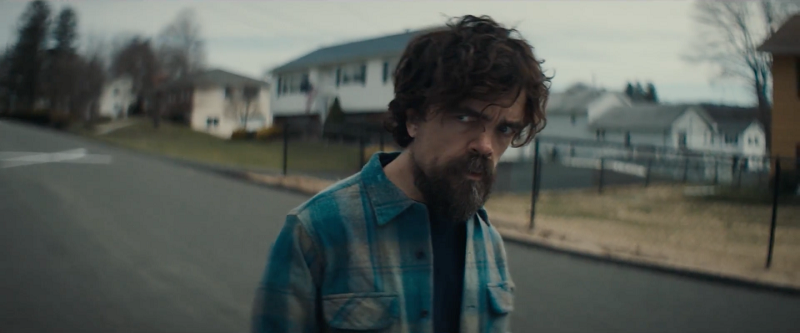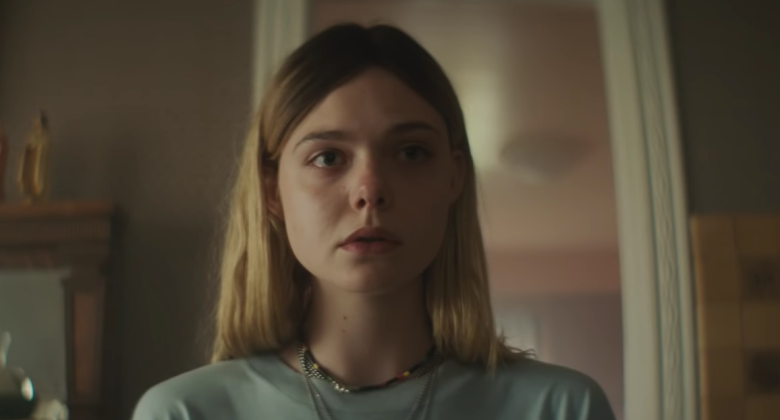It takes a certain kind of actor to carry a film where they are the only one(s) who we the audience spend time with over the course of the story. Both Peter Dinklage and Elle Fanning are those types of thespians. That’s fantastic because they headline the end-of-the-world mind-bender that is Reed Morano’s I Think We’re Alone Now.
The primary spoke in the wheel of bare bones truth that is this film is Morano. She is a filmmaker firmly rooted in crafting worlds that are uniquely dystopian, yet firmly relatable in the manner with which they make an audience think about how we as a society can get from our current reality to her crafted alternative future. She is a gifted helmer and between the titanic trifecta of talent that is Dinklage, Fanning and Morano, I Think We’re Alone Now is a surprisingly resonant experience.
Dinklage is Del and as far as he knows, he is the last human being left on earth. Something has happened—what it is is never truly answered, merely alluded to and that is sufficient. The film is not about what it is that wiped humans off the map, Morano instead brilliantly focuses on a bare bones character study of two souls and what occurs between people when those societal rules do not hinder who we are—after all, there is no longer a society.
Del is a recluse and from all outside appearances, is thriving in this human-less world. He is a bit of a control freak and with no one impeding that aspect of his personality, Del has managed to orchestrate a New York state community that is customized to his liking. He spends his days taking care of the dead (giving them a proper burial), cleaning their homes and pilfering their belongings for items of use in this post-apocalyptic world (there cannot be enough batteries, people!). One by one, he is working his way through the town.
At all other times, he is anchored at the town’s library… returning books from the homes he cleans and entertaining himself with numerous laptops and the library’s video collection. There is no electricity anymore (thus the need for all those batteries) and when a laptop dies, he tosses it in an orderly pile and turns on another.
It’s quite the existence. One night, it gets rocked. A car alarm sounds from some corner of town and Del heads out to investigate. He finds Grace (Fanning) in car crashed against an embankment and unconscious from hitting her head. When she awakes at his place, Grace is delighted to finally see another person. Del, on the other hand, is not so sure. It is at this point that the film forces the viewer to look inward. Is loneliness better than spending time with someone who is an unknown commodity? Who, when there were people everywhere, might not have even been a person chosen to spend time with?
As played out in I Think We’re Alone Now, it is an answer that evolves and its not fully responded to until the film’s final moments—and that is a pitch perfect response to the questions any film raises. Mike Makowsky’s script is keeps us guessing in terms of the entire spectrum of what this film is about and where it’s going throughout until its rich close. Makowsky paints with tones that are equally adept in eschewing the virtues of solitude versus the complicated web of two souls intertwining.
Dinklage must have done the jig when he got this script. This is an actor’s chance to shine and with his supreme gifts, it is a compelling and fascinating journey into the soul of what it means to be human. His volley partner, Fanning, when she shows up on screen, sets the entire film on its edge. This is a case of a storytelling experience turning on a dime and how Fanning infuses the effort with a vivacious curiosity—which is the antithesis of Dinklage’s character—is as scientific in its exploration of what makes a person tick as a characterization can get. The two together forge a cinematic bond that has us buckled up for the ride and ever uncertain as to where we’re going. Isn’t that the most you could ask of a character study, which I Think We’re Alone Now is at its heart?
Morano (who directed The Handmaid’s Tale) shines in this most compelling of tales that works due to its leads, sure, but the even-handed helming technique employed by its filmmaker is why it stands above other dystopian efforts. She hangs on moments, where others may have cut. The composer of the score, Adam Taylor, and the director make beautiful music that transcends the sounds of instruments in that it adds elements of emotive texture to the visual. Collectively all who came together to make this beautiful, yet unnerving in the best of ways, picture have done something truly interesting and intimate. It is not one you will shake easily.
Grade: B+



